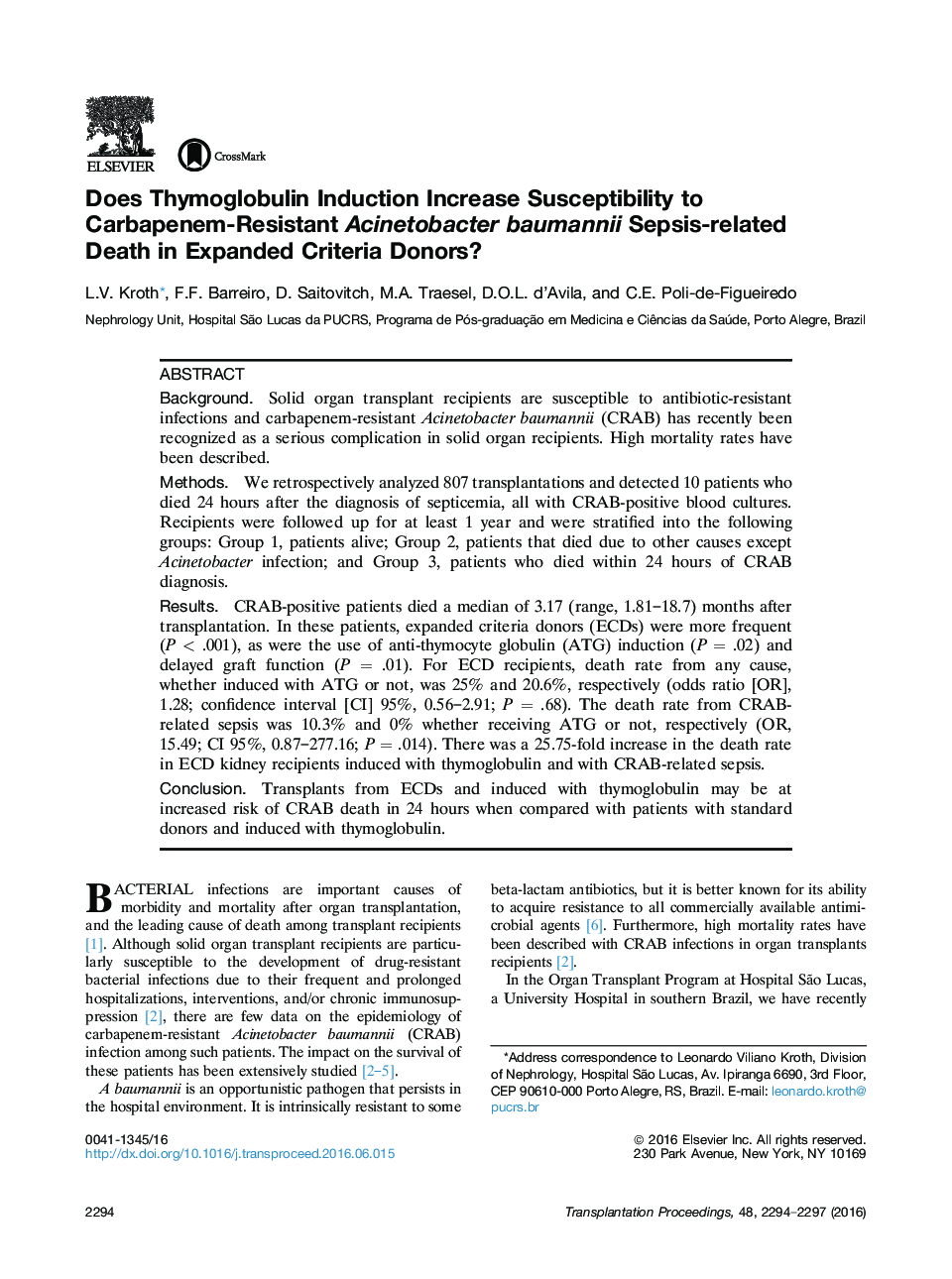| Article ID | Journal | Published Year | Pages | File Type |
|---|---|---|---|---|
| 5729351 | Transplantation Proceedings | 2016 | 4 Pages |
BackgroundSolid organ transplant recipients are susceptible to antibiotic-resistant infections and carbapenem-resistant Acinetobacter baumannii (CRAB) has recently been recognized as a serious complication in solid organ recipients. High mortality rates have been described.MethodsWe retrospectively analyzed 807 transplantations and detected 10 patients who died 24 hours after the diagnosis of septicemia, all with CRAB-positive blood cultures. Recipients were followed up for at least 1 year and were stratified into the following groups: Group 1, patients alive; Group 2, patients that died due to other causes except Acinetobacter infection; and Group 3, patients who died within 24 hours of CRAB diagnosis.ResultsCRAB-positive patients died a median of 3.17 (range, 1.81-18.7) months after transplantation. In these patients, expanded criteria donors (ECDs) were more frequent (PÂ < .001), as were the use of anti-thymocyte globulin (ATG) induction (PÂ = .02) and delayed graft function (PÂ = .01). For ECD recipients, death rate from any cause, whether induced with ATG or not, was 25% and 20.6%, respectively (odds ratio [OR], 1.28; confidence interval [CI] 95%, 0.56-2.91; PÂ = .68). The death rate from CRAB-related sepsis was 10.3% and 0% whether receiving ATG or not, respectively (OR, 15.49; CI 95%, 0.87-277.16; PÂ = .014). There was a 25.75-fold increase in the death rate in ECD kidney recipients induced with thymoglobulin and with CRAB-related sepsis.ConclusionTransplants from ECDs and induced with thymoglobulin may be at increased risk of CRAB death in 24 hours when compared with patients with standard donors and induced with thymoglobulin.
